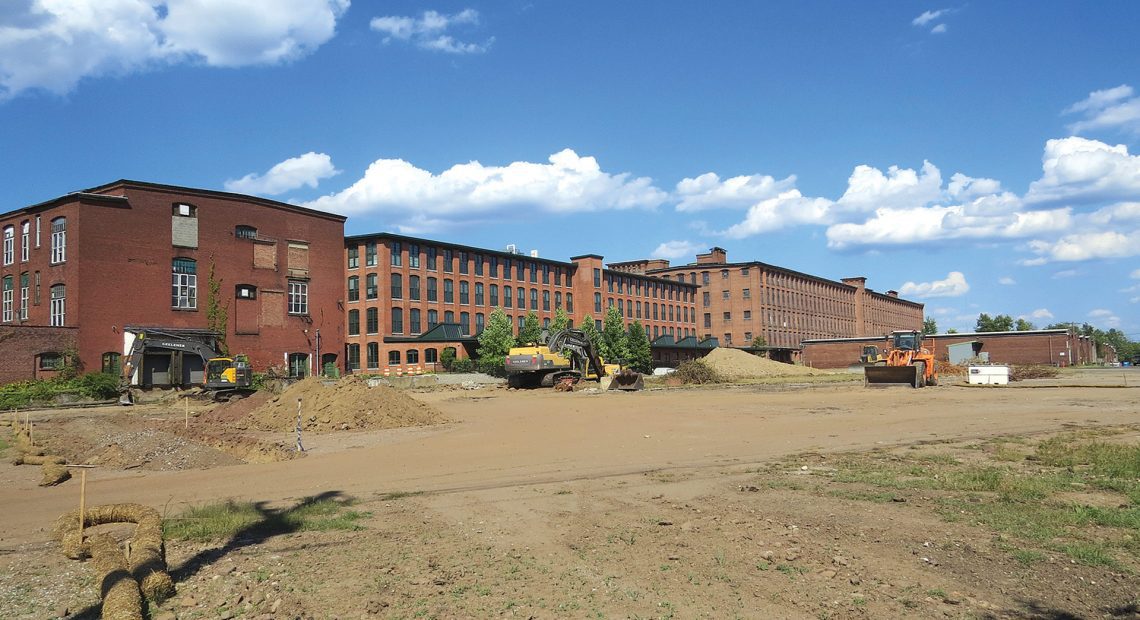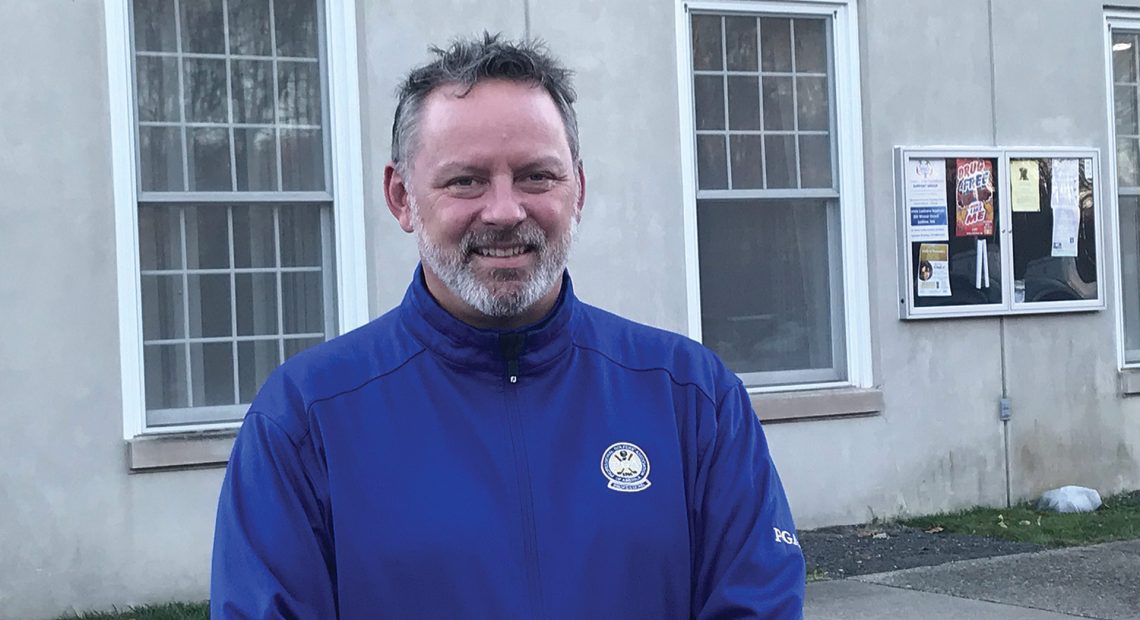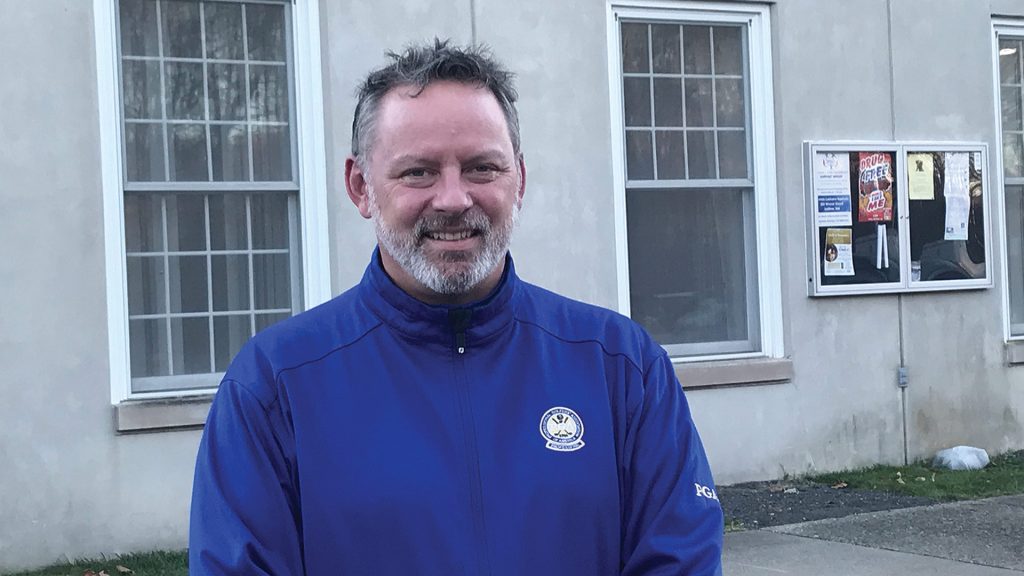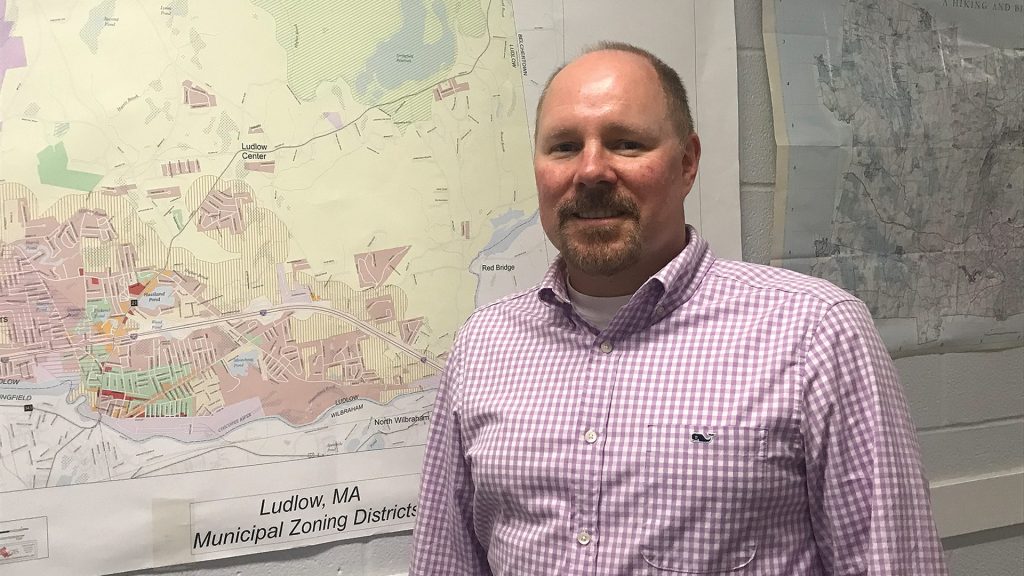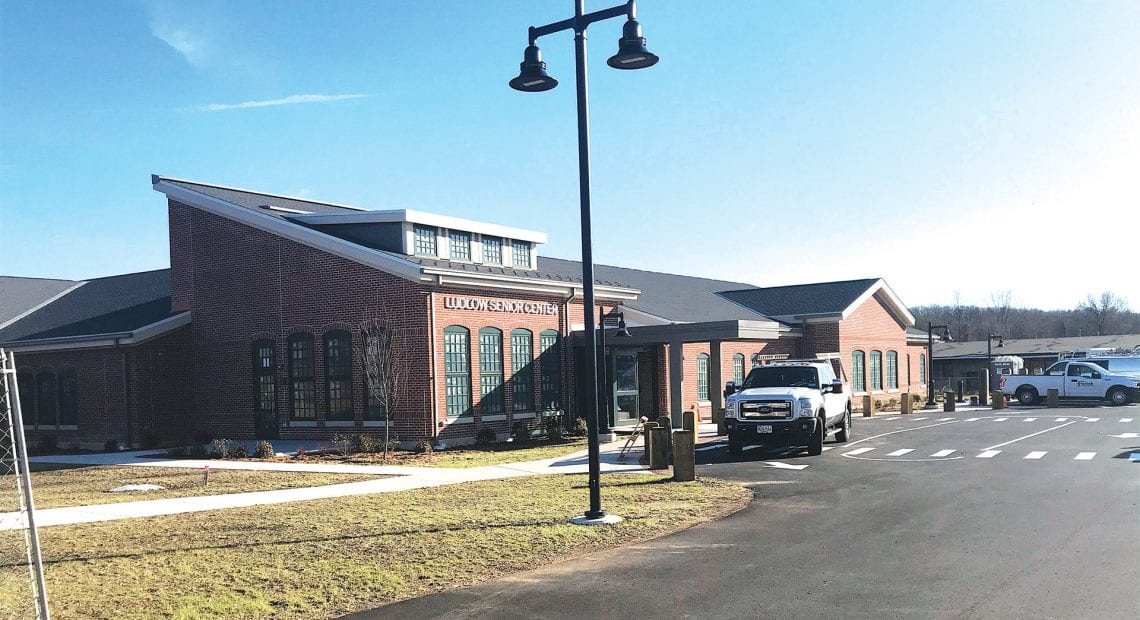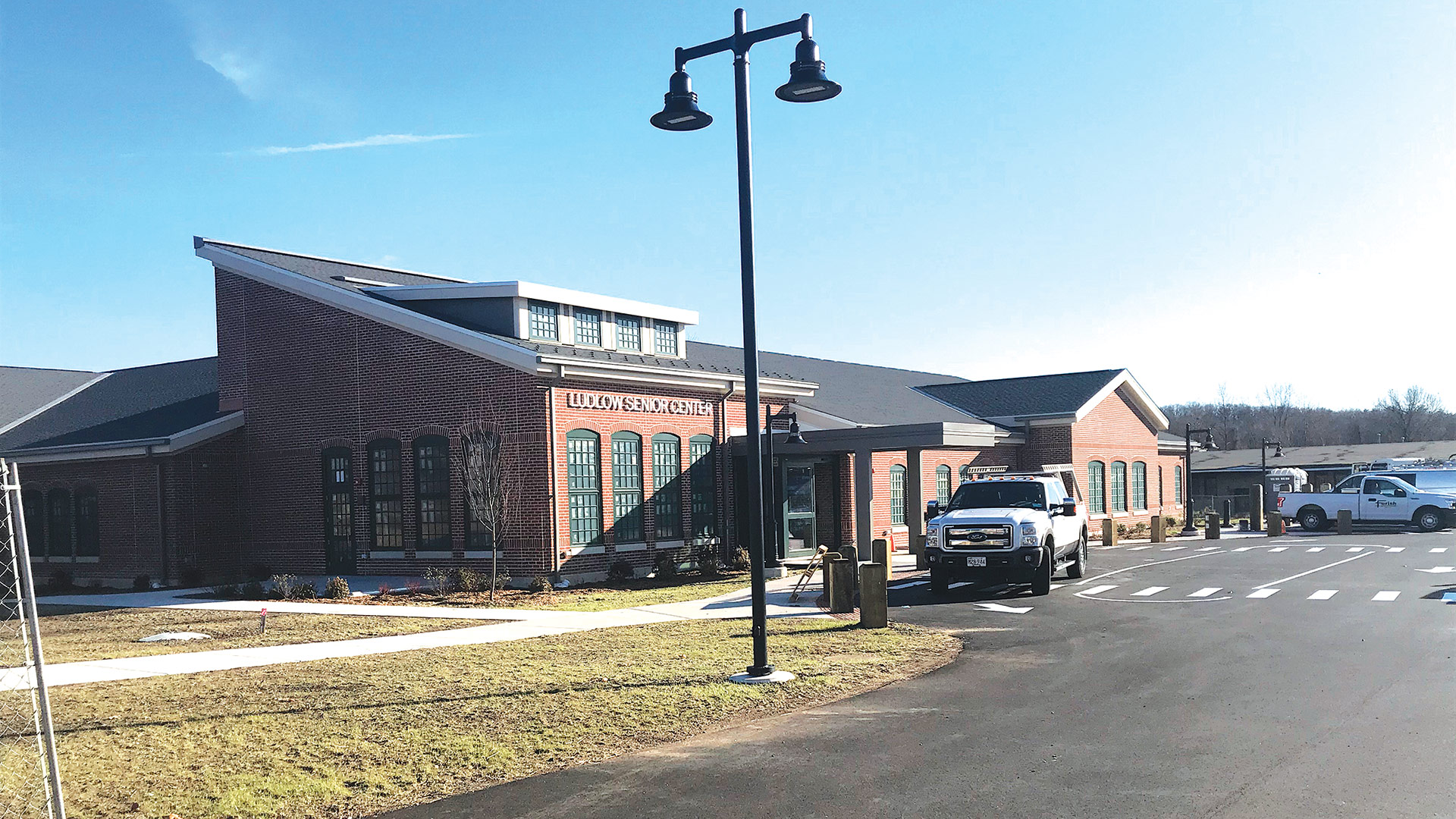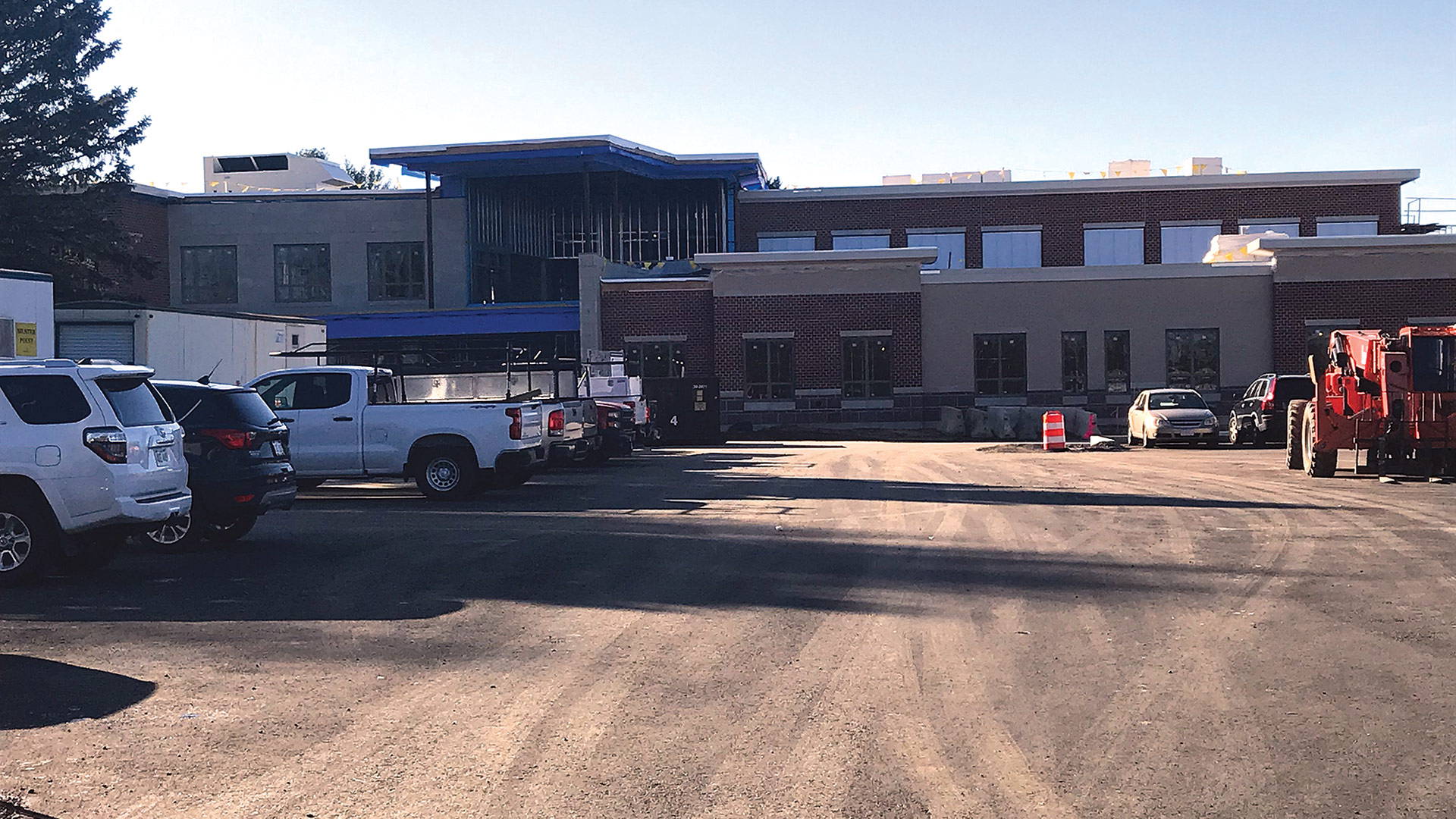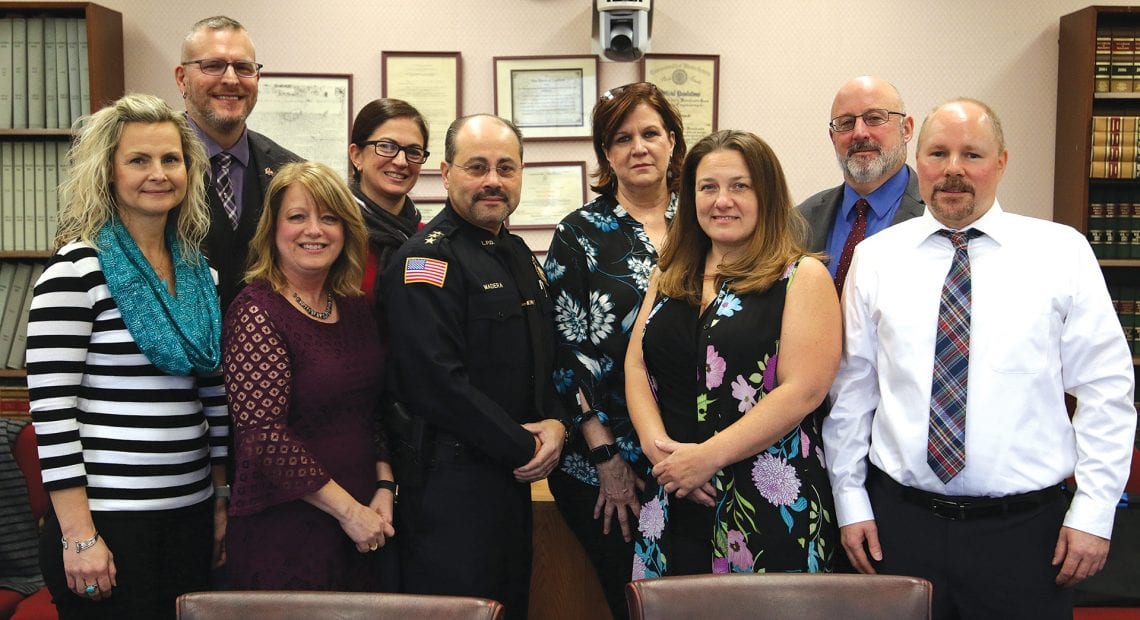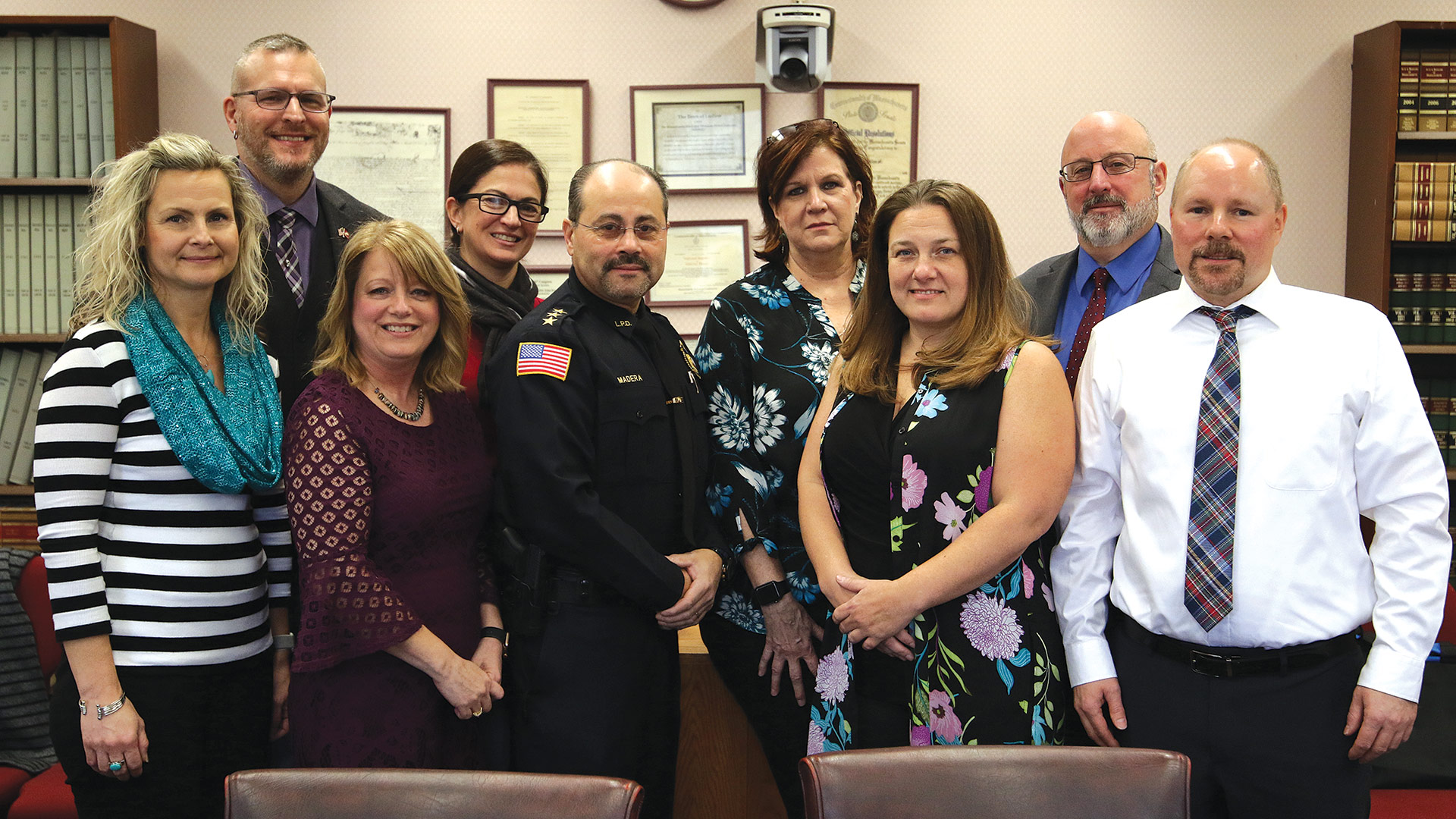Community Spotlight
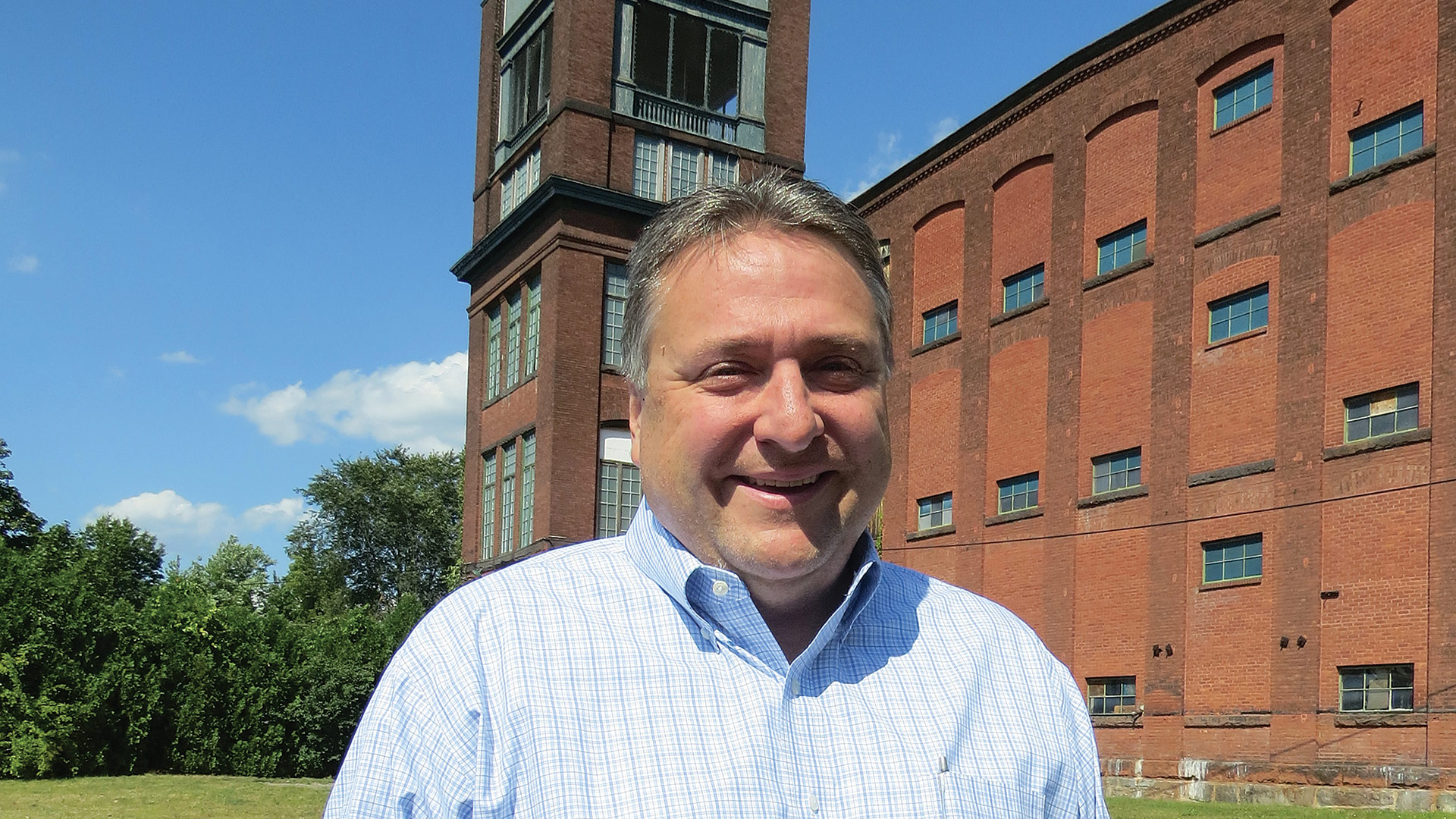
Jeff Daley says the Ludlow Mills project is at an important turning point.
When Westmass Area Development Corp. and its board of directors went all in and acquired the massive and environmentally challenged Ludlow Mills complex in 2011, Jeff Daley said, they did so with the understanding that they were embarking on a long and difficult journey.
But they probably didn’t know how long and just how difficult.
Indeed, the process of transforming the former jute-making complex into a mixed-used property and destination has come complete with a number of challenges, many of them related to simply making various parts of the complex ready for redevelopment, said Daley, the executive director of Westmass since 2019.
But, in many respects, the Ludlow Mills redevelopment initiative has turned a critical corner, he noted, adding that much of the work to ready specific buildings and the property as a whole for development has now been completed, and the focus, increasingly, is on development.
“We’re certainly at a turning point, where we’re focusing our efforts on redevelopment as opposed to staying afloat and cleaning the site — it was a very dirty site back when they first bought it,” he told BusinessWest, referring to asbestos and ground contamination. “And there’s still a lot of cleanup left to do, but the focus is shifting from preserving and investing in the cleaning of the site to continuing that cleaning, which we need to do, but also looking now toward projects that we can invest good dollars in and get good returns from.”
“There’s a sense of place there as you come over the bridge. And we feel that this is an area that’s untapped and could be refreshed a little bit in terms of the roadway infrastructure and facades.”
That is certainly the plan, and the hope, with Building 8, or what many refer to as the ‘clocktower building,’ because it is home to the town’s most recognizable landmark.
With some imaginative financing assistance — Westmass will actually be taking an equity stake in the project — Winn Development will soon proceed with an initiative to transform the property into a 96-unit housing complex with retail on the ground floor.
Meanwhile, a $1 million project to put a new roof on Building 11, the largest structure on the campus, is underway, with the goal of facilitating development of that 480,000-square-foot property into another mix of housing and commercial businesses, and perhaps a parking garage as well.
Also, work is nearly complete on Riverside Drive, a new road that winds along the Chicopee River, which will connect the front of the property to the undeveloped acreage at its eastern end. Another road, hopefully to be funded with a MassWorks grant (word on the application should be received in the fall), will be built into that property, greatly facilitating its development, said Daley, noting there has been a good deal of interest expressed in that property due to a shortage of developable land in the region.
While the Ludlow Mills complex is certainly the dominant business story in Ludlow, there are other developments of note, starting in Town Hall. There, discussions continue about whether and how to change the community’s form of government, said Marc Strange, the recently hired town administrator.
“Officials are considering a mayoral form of government or a town manager/town council format similar to what exists in East Longmeadow,” said Strange, who served previously as director of Planning and Economic Development in Agawam and also as a selectman in Longmeadow, noting that the town has certainly outgrown its current format with five selectmen, a town administrator, and town meeting.
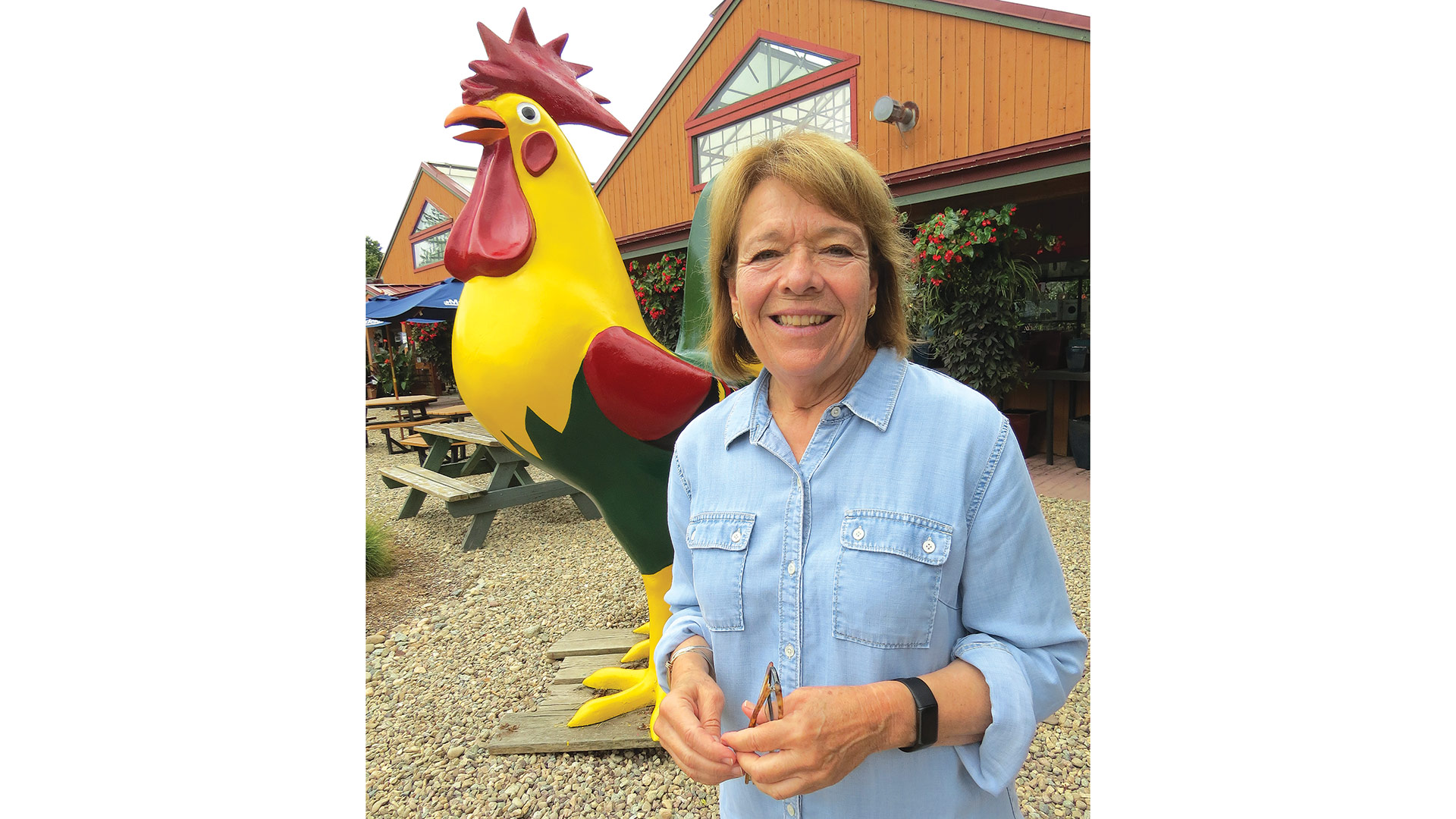
Karen Randall says the business started by her father 60 years ago, has grown and evolved, just as Ludlow has.
“That’s a pretty big lift, and the town needs to be on board with it,” he explained. “For now, we’re chipping away toward that goal and making small, incremental changes to get everyone working in the same direction.”
Meanwhile, the community is looking to fund improvements to the downtown area that greets those as they come over the bridge that links the city to Indian Orchard, said Strange, adding that, while Ludlow has a large and diverse business community, it is always looking to build on this base.
“There’s a sense of place there as you come over the bridge,” he said. “And we feel that this is an area that’s untapped and could be refreshed a little bit in terms of the roadway infrastructure and facades.”
For this, the latest installment of its Community Spotlight series, BusinessWest turns its lens on Ludlow, a community that is a developing story in every sense of that phrase.
Growth Patterns
As she talked with BusinessWest outside the main entrance to Randall’s Farm, the business that her father started with what amounted to a vegetable stand, Karen Randall reflected on how much this enterprise — and the town of Ludlow itself — have changed over the past 60 years.
“None of this was here,” she said as she swept her hand in front of her and pointed out the many businesses now located along Center Street. “Ludlow has grown, and we’ve grown with Ludlow.”
Elaborating, she said the town benefits from its location — off turnpike exit 7 and near a number of growing residential communities, including Wilbraham, Granby, Belchertown, and others — and from its own growth; it has seen a number of new residential developments in recent years that have brought many young people to what was an industrial town that grew from the Ludlow Mills complex.
“If we can create some kind of plan for that area, that will be helpful, in terms of letting the development community know that we’re open for business and we’re ready to go if they want to come to Ludlow and put some shovels in the ground.”
Randall’s Farm has certainly benefited from the growth in and around Ludlow, she said, adding that it draws regular, daily traffic from those living in the community, but also steady traffic from those an exit or two down the pike.
“We have customers from within a 20-mile radius,” Randall said, adding that business has been solid this year, and she is expecting the fall, the busiest time for this enterprise, to be very busy as the region continues the two-year-long process of returning to normal from the pandemic and its many side effects.
The pandemic and its aftermath have brought changes at Randall’s — it has discontinued many of its entertainment-related endeavors, including a corn maze and workshops on various subjects — and challenges, including the workforce issues that have impacted businesses in every sector.
Overall, the pandemic has been for Randall’s what it has been for many business ventures, she said — a valuable learning experience.
“COVID taught us a lot of lessons on what works and what doesn’t, and it’s taught us that we can adapt quickly to whatever was coming down the pike,” she explained. “We didn’t miss a beat; we had the same issues that everyone else did — some people may have retired sooner, while others stopped working sooner during the first months of the pandemic, but we persevered, and I think we become stronger because of what we learned.”
Heading into the busy fall season, Randall’s, like other businesses, continues to face workforce challenges — there are some days when it does not have a donut maker, for example — but Randall believes it will be ready. The biggest challenge may be climate, specifically a lack of rain and its still-unknown impact on pumpkins, apples, and other crops grown locally.
“We’re hiring front-line people — we think we have the donut-making issue squared away — and we’re getting ready,” she told BusinessWest. “And we’ll see how this drought effects the season.”
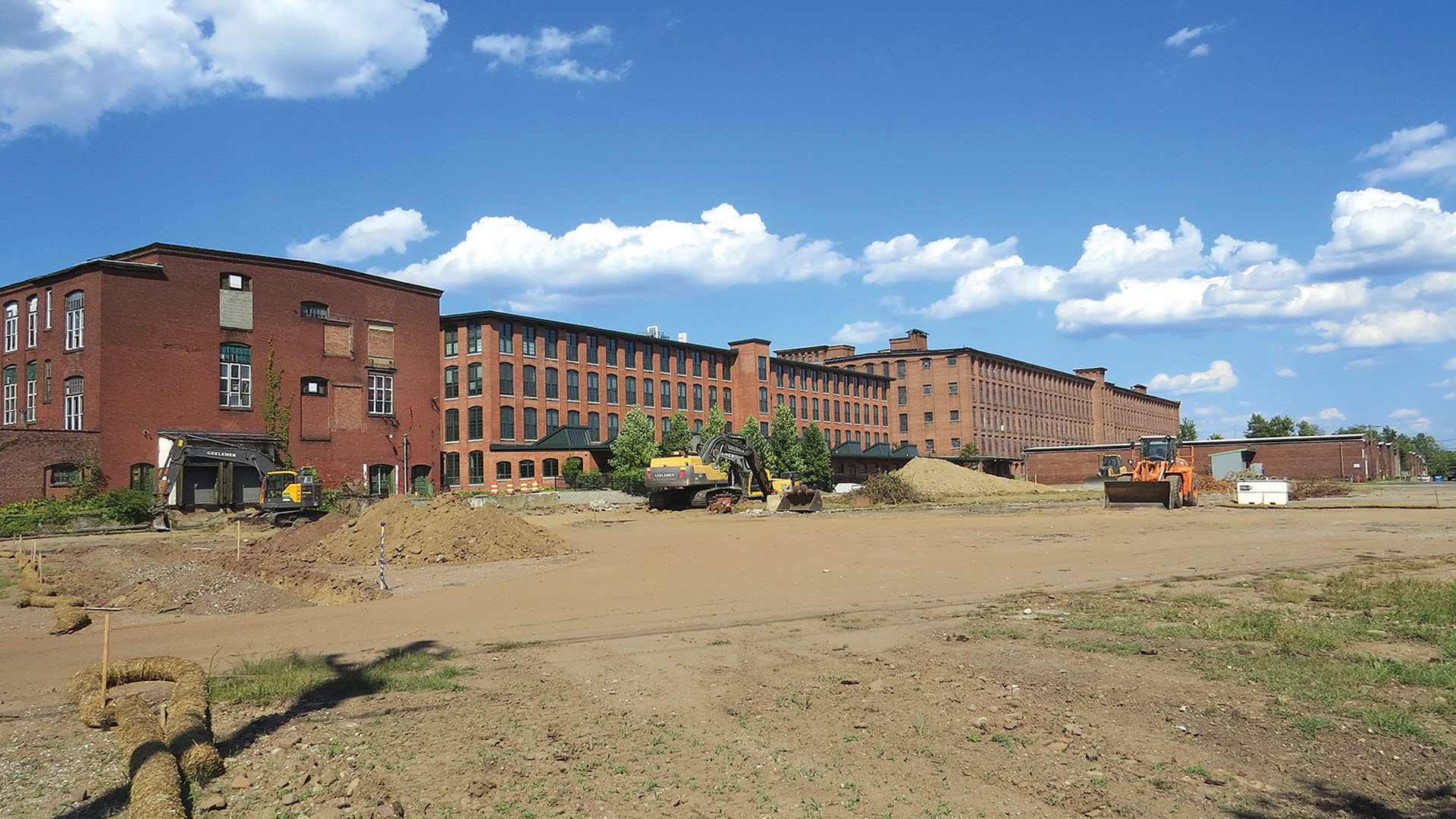
Crews work to create a parking lot for the planned redevelopment of Building 8 at the Ludlow Mills, one of many new developments at the complex.
Overall, Ludlow has a large and diverse business community, said Strange, adding that one of the town’s goals is to improve infrastructure and make the Center Street corridor more attractive and even more of an asset.
Which brings him back to that area, technically the community’s downtown, that greets people coming over the bridge from Indian Orchard. The town will apply for a Community Compact grant to develop a broad economic-development plan that will encompass that area and others in the community.
“There’s some successful businesses in there, but we also have some empty storefronts,” he explained. “Our Memorial Park is there, and that’s where we’ll have Celebrate Ludlow. I think there’s a foundation for something special by way of economic development in that corridor.
“If we can create some kind of plan for that area, that will be helpful,” he went on, “in terms of letting the development community know that we’re open for business and we’re ready to go if they want to come to Ludlow and put some shovels in the ground.”
Run of the Mills
There should be some shovels hitting the ground soon at at Ludlow Mills, which has certainly been the focal point of development in Ludlow over the past decade. Indeed, continued progress is being made in what will be at least a 20-year effort to put the various spaces — as well as 40 acres of developable green space — to new and productive use.
Running through recent and upcoming developments, Daley started with Building 8, a long-awaited project that will bring another residential complex to the site after the highly successful renovation of Building 10 into apartments; there is now a lengthy waiting list for units in that property.
Ludlow at a glance
Year Incorporated: 1774
Population: 21,002
Area: 28.2 square miles
County: Hampden
Residential Tax Rate: $19.99
Commercial Tax Rate: $19.99
Median Household Income: $53,244
Median Family Income: $67,797
Type of Government: Town Council, Representative Town Meeting
Largest Employers: Hampden County House of Correction; Encompass Rehabilitation Hospital; Massachusetts Air National Guard; Kleeberg Sheet Metal Inc.
*Latest information available
The plan calls for apartments on the upper floors and a mix of retail on the first floor, Daley explained, adding that a coffee shop or sandwich shop would be an ideal use given the growing numbers of people living and working in the complex or within a few blocks of it. That growing population could inspire other types of retain as well, he added.
“We can’t overlook the fact that, once those apartments are done, there will be 160 units right in that vicinity, with an average of two people per unit. That’s a captured audience of more than 300 people to support small businesses; there might be a doctor’s office or lawyer’s offices, for example.”
To make the project happen in these times of inflation and soaring construction costs — an overall 28% increase in the projected price tag for this initiative — Westmass needed to get creative and take a “sizable equity investment” in the project, Daley said. He didn’t say how sizeable, but he did note that this step was needed to keep this project on track.
“It made the project go, and we really want to see the project go — for the town of Ludlow, for the mills, and, selfishly, we want to see that first floor activated so we can generate some revenues from retail and commercial businesses,” he explained.
As for Building 11, the next major target for redevelopment, a mix of housing and commercial retail would be ideal, he said, adding there will be options when it comes to what type of housing might be seen.
“There’s certainly a need for independent living, there’s a need for care living, dementia living, those types of facilities,” he said. “But also for more market-rate housing.”
Overall, the Ludlow Mills property is well-positioned for development, Daley said, adding that everything in its inventory, from commercial and industrial space to raw land, are in demand.
“We have a lot of interest in not only the land, but everything,” he told BusinessWest. “There’s not a lot of inventory out there — for commercial properties or green space. Our property is flat and mostly dry, so it becomes pretty attractive for development.”
As Daley said, Ludlow Mills has been a longer and more difficult journey than anyone could have anticipated when the property was acquired in 2011, but an important turning point has been reached, and a new chapter in this story is set to unfold.
George O’Brien can be reached at [email protected]



